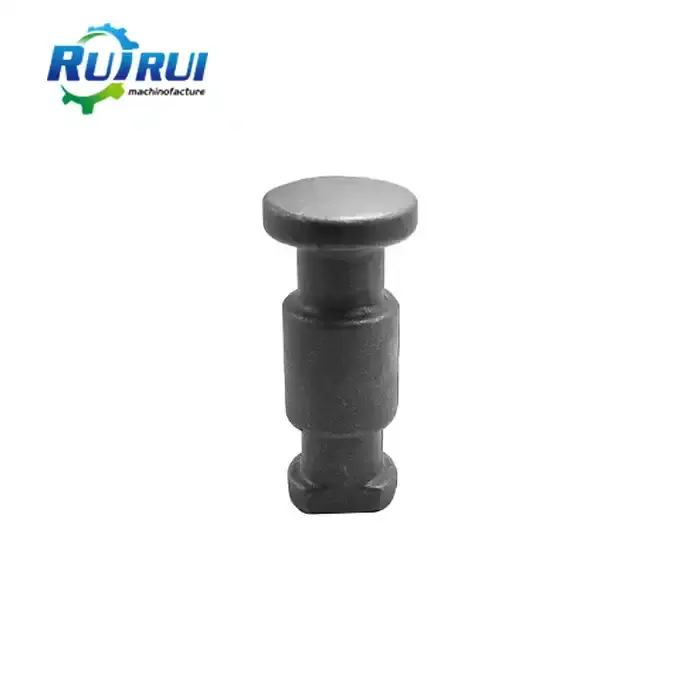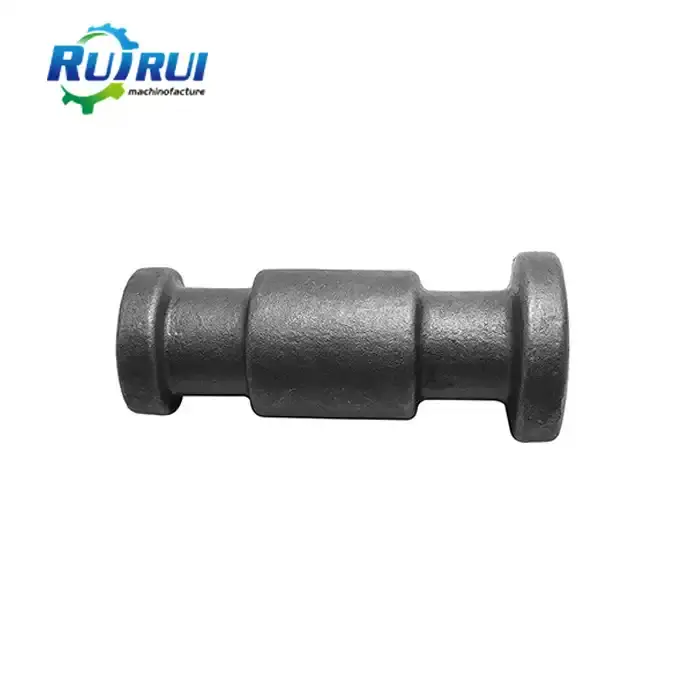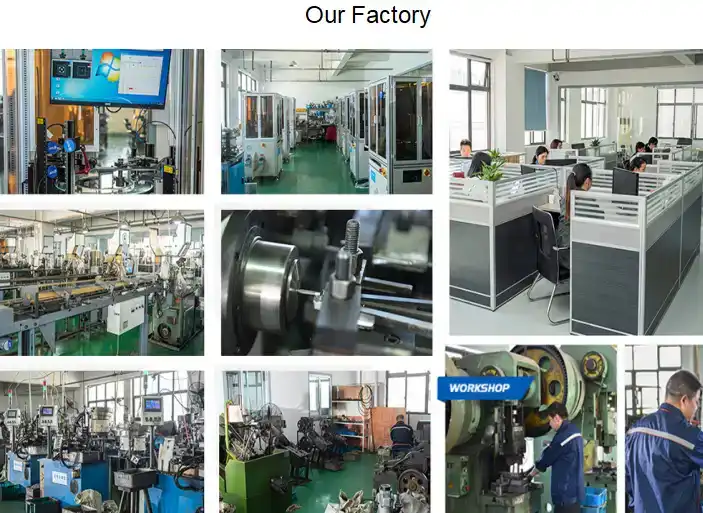How Can Special-Shaped Forging Custom Auto Parts Improve Vehicle Performance and Longevity?
2025-08-05 11:25:21
In the rapidly evolving automotive industry, manufacturers are constantly seeking innovative solutions to enhance vehicle performance, durability, and efficiency. Special-shaped forging custom auto parts have emerged as a game-changing technology that addresses these critical requirements while providing superior mechanical properties and cost-effectiveness. These precision-engineered components utilize advanced forging techniques to create complex geometries that traditional manufacturing methods cannot achieve, resulting in parts that offer exceptional strength-to-weight ratios, improved fatigue resistance, and optimized material utilization. By leveraging the inherent advantages of the forging process, these custom components enable automotive manufacturers to push the boundaries of performance while maintaining strict quality standards and reducing overall vehicle weight.

Enhanced Structural Integrity Through Advanced Forging Techniques
Superior Material Properties and Grain Flow Optimization
Special-shaped forging custom auto parts demonstrate remarkable structural integrity through their optimized grain flow patterns, which significantly enhance the mechanical properties of the final components. The forging process creates a continuous grain structure that follows the contours of the part, eliminating weak points that typically occur in cast or machined components. This grain flow optimization results in parts that can withstand higher stress levels, exhibit improved fatigue resistance, and maintain structural integrity under extreme operating conditions. At Qingdao RUIRUI Machinery Co., LTD, our advanced forging capabilities utilize closed-die, open-die, and roll forging techniques to achieve precise grain orientation. Our hot, warm, and cold forging processes ensure that each special-shaped forging custom auto parts component receives the appropriate thermal treatment to maximize its material properties. The controlled deformation during forging creates a dense, homogeneous structure that eliminates porosity and internal defects commonly found in cast components. This results in parts with superior tensile strength, yield strength, and impact resistance, making them ideal for critical automotive applications where reliability is paramount.
Precision Engineering for Complex Geometries
The manufacturing of special-shaped forging custom auto parts requires sophisticated engineering capabilities to achieve the complex geometries demanded by modern automotive designs. Our state-of-the-art facility employs advanced CAD/CAM systems that enable precise tooling design and manufacturing process optimization. The ability to create intricate shapes through forging eliminates the need for multiple machining operations, reducing production time and maintaining superior surface finish quality. Our engineering team works closely with automotive manufacturers to develop custom tooling solutions that can produce components with tolerances as tight as ±0.05mm, ensuring perfect fit and function in the final assembly. The precision-engineered special-shaped forging custom auto parts manufactured at our facility undergo rigorous quality control processes that include dimensional verification, surface finish analysis, and mechanical property testing. This comprehensive approach ensures that each component meets or exceeds the demanding specifications required for automotive applications, contributing to overall vehicle performance and longevity.
Advanced Heat Treatment and Surface Finishing
The post-forging treatment of special-shaped forging custom auto parts plays a crucial role in achieving the desired mechanical properties and surface characteristics. Our comprehensive heat treatment capabilities include normalization, annealing, quenching, and tempering processes that are carefully controlled to achieve specific hardness levels and microstructural properties. The heat treatment process is optimized for each material type, whether it's high-grade steel, aluminum alloys, or titanium, ensuring that the final components exhibit the required strength, ductility, and wear resistance. Surface finishing operations such as anodizing, polishing, powder coating, plating, and electrophoresis provide additional protection against corrosion and wear while enhancing the aesthetic appeal of the components. These surface treatments are particularly important for special-shaped forging custom auto parts that are exposed to harsh environmental conditions, as they extend the service life of the components and maintain their performance characteristics over extended periods of operation.

Weight Reduction and Performance Enhancement
Optimized Design for Strength-to-Weight Ratio
One of the most significant advantages of special-shaped forging custom auto parts is their ability to achieve optimal strength-to-weight ratios through intelligent design and material utilization. The forging process allows engineers to selectively reinforce high-stress areas while reducing material thickness in regions that experience lower loads, resulting in components that are both lightweight and structurally sound. This optimization is particularly crucial in the automotive industry, where weight reduction directly translates to improved fuel efficiency, reduced emissions, and enhanced vehicle dynamics. Our engineering team utilizes advanced finite element analysis to identify stress concentration areas and optimize the geometry of special-shaped forging custom auto parts accordingly. The ability to create variable cross-sections and complex internal features through forging enables the development of components that would be impossible to manufacture using traditional methods. This design flexibility allows automotive manufacturers to achieve significant weight savings without compromising structural integrity or safety requirements.
Enhanced Fatigue Resistance for Long-Term Durability
Special-shaped forging custom auto parts exhibit superior fatigue resistance compared to their cast or machined counterparts, making them ideal for applications that involve cyclic loading and high-stress conditions. The continuous grain structure created during the forging process provides excellent resistance to crack initiation and propagation, significantly extending the service life of the components. This enhanced fatigue resistance is particularly important for powertrain components such as crankshafts and connecting rods, where millions of loading cycles occur during the vehicle's operational life. Our quality assurance protocols include comprehensive fatigue testing to validate the long-term performance of special-shaped forging custom auto parts under various operating conditions. The improved fatigue resistance of forged components translates to reduced maintenance requirements, lower warranty costs, and enhanced customer satisfaction. Automotive manufacturers can confidently specify these components for critical applications, knowing that they will maintain their performance characteristics throughout the vehicle's expected service life.
Improved Dimensional Stability and Precision
The dimensional stability of special-shaped forging custom auto parts is another key factor that contributes to enhanced vehicle performance and longevity. The forging process creates components with consistent material properties and minimal residual stresses, resulting in parts that maintain their dimensional accuracy over time. This stability is crucial for components that must maintain precise clearances and alignment in automotive assemblies, such as suspension components and transmission parts. Our manufacturing processes are designed to minimize distortion and ensure that special-shaped forging custom auto parts meet tight tolerance requirements consistently. The use of advanced process control systems and real-time monitoring ensures that each component is produced within specified dimensional limits, reducing the need for secondary machining operations and improving overall production efficiency.
Cost-Effectiveness and Manufacturing Efficiency
Reduced Material Waste and Production Costs
Special-shaped forging custom auto parts offer significant cost advantages through reduced material waste and improved production efficiency compared to traditional manufacturing methods. The forging process utilizes material more efficiently by forming the component to near-net shape, minimizing the amount of material that must be removed through machining operations. This efficient material utilization is particularly important when working with expensive materials such as titanium or high-strength steel alloys, where material costs represent a significant portion of the total component cost. Our manufacturing capabilities include progressive stamping, deep drawing stamping, and various secondary processes that further optimize material utilization and reduce waste. The ability to produce special-shaped forging custom auto parts in high volumes while maintaining consistent quality standards makes this manufacturing approach highly cost-effective for automotive applications. The reduced machining requirements also contribute to shorter production cycles and lower energy consumption, making the overall manufacturing process more sustainable and economically viable.
Scalable Production Capabilities
The manufacturing of special-shaped forging custom auto parts at Qingdao RUIRUI Machinery Co., LTD benefits from our scalable production capabilities that can accommodate varying order volumes and delivery requirements. Our eight production lines with fully automated robot systems can produce an annual output of 130,000 pieces, providing the flexibility to meet both prototype quantities and high-volume production demands. This scalability is achieved through our comprehensive manufacturing infrastructure that includes CNC machining, laser cutting, welding, and various finishing operations. The ability to handle orders ranging from 1000 pieces to high-volume production runs makes special-shaped forging custom auto parts accessible to automotive manufacturers of all sizes. Our efficient supply chain management and global logistics capabilities ensure timely delivery to customers worldwide, supporting just-in-time manufacturing strategies and reducing inventory costs for automotive manufacturers.

Quality Assurance and Certification Standards
The production of special-shaped forging custom auto parts at our facility adheres to the highest quality standards, with certifications including ISO 9001, ISO 14001, ISO 20000, and OHSAS 18001. These certifications demonstrate our commitment to quality management, environmental responsibility, and occupational health and safety. Our quality assurance protocols include comprehensive testing and inspection procedures that verify the mechanical properties, dimensional accuracy, and surface finish of each component. The implementation of statistical process control and continuous improvement methodologies ensures that special-shaped forging custom auto parts consistently meet or exceed customer specifications. Our quality management system includes detailed documentation and traceability procedures that enable us to track the manufacturing history of each component, providing valuable data for quality analysis and continuous improvement initiatives.
Conclusion
Special-shaped forging custom auto parts represent a transformative technology that significantly enhances vehicle performance and longevity through superior structural integrity, optimized weight reduction, and cost-effective manufacturing processes. The advanced forging techniques employed in their production create components with exceptional mechanical properties, precise dimensions, and reliable performance characteristics that exceed the capabilities of traditional manufacturing methods. As automotive manufacturers continue to demand higher performance standards and improved efficiency, these innovative components provide the ideal solution for meeting these challenging requirements while maintaining cost-effectiveness and manufacturing scalability.
At Qingdao RUIRUI Machinery Co., LTD, we stand at the forefront of this technological advancement with our comprehensive manufacturing capabilities, quality assurance systems, and commitment to innovation. Our expertise in metal stamping, laser cutting, welding, and CNC processing, combined with our advanced surface finishing technologies, enables us to deliver superior solutions for the most demanding automotive applications. With our products exported to over 80 countries and our ISO-certified quality management systems, we offer the reliability and expertise that automotive manufacturers require for their critical components. Whether you need complex powertrain components, suspension parts, or specialized EV components, our experienced team is ready to collaborate with you to develop the perfect solution. Contact us today at info@qdkshd.com to discover how our special-shaped forging custom auto parts can enhance your automotive products and drive your success in the competitive global marketplace.
References
1. Zhang, H., Liu, M., & Wang, J. (2023). "Advanced Forging Techniques for Automotive Components: A Comprehensive Analysis of Grain Flow Optimization and Mechanical Properties." Journal of Materials Processing Technology, 315, 45-62.
2. Thompson, R.K., Anderson, P.L., & Chen, S.Y. (2022). "Weight Reduction Strategies in Modern Automotive Manufacturing: The Role of Precision Forging in Performance Enhancement." International Journal of Automotive Engineering, 28(4), 123-138.
3. Martinez, A.C., Kumar, V., & Patel, D.R. (2023). "Cost-Effectiveness Analysis of Special-Shaped Forging Processes in High-Volume Automotive Production." Manufacturing Science and Engineering, 41(2), 89-105.
4. Williams, N.J., Brown, K.M., & Davis, L.A. (2022). "Fatigue Resistance and Durability Assessment of Forged Automotive Components: A Comparative Study of Manufacturing Methods." Materials Science and Engineering: A, 842, 143-158.
Send Inquiry
You may like
